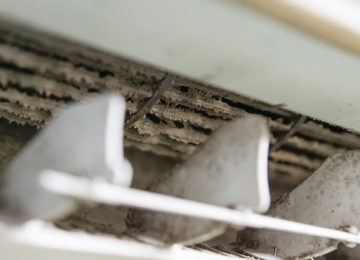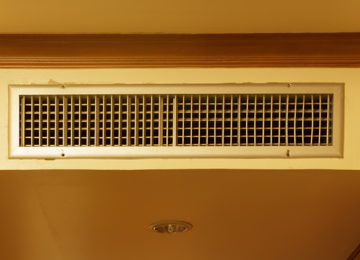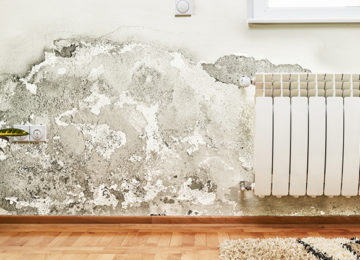Black mold is a subject every home or business owner should research and be aware of. Mold is tricky because it can cause various health issues or none at all. While black mold itself isn’t considered any more dangerous by the CDC or EPA than any other mold, the toxins released from black mold may be more harmful to some individuals than other types of mold. Let’s look at the causes of black mold and the possible dangers to you.
Hidden Truth of Black Mold
The truth is, mold is everywhere. Mold releases spores into the air as part of its life cycle that can literally be found in every environment in the world in almost any weather condition. Wherever you find moisture you may find some sort of mold growing. Mold requires a cellulosic food source, so it likes to grow on cellulosic building materials like paper faced drywall or wooden structural materials, but it can grow on almost any surface. “Black mold” is a term coined by the media that refers to a specific species of mold named Stachybotrys Chartarum. Black mold may be recognized by its distinct greenish-black color, but definitive identification can only be made through microbiological sampling. It is often visible, but it could very well be hiding underneath your floorboards or within walls, if a hidden moisture source is present. Black mold can rapidly spread in a warm, wet environment, and exposure to it can cause health issues or symptoms in some individuals.
Black Mold Exposure
It is possible you will get sick or experience symptoms if exposed to black mold. If you inhale, ingest or have long-term exposure to black mold you are at risk for health issues. Exposure to black mold can cause coughing, wheezing, red eyes, itchy skin or eyes, sore or scratchy throat, and other allergic-type symptoms. Symptoms could be more dramatic for those with a weakened immune system or respiratory issues like asthma. Long-term Black mold exposure could contribute to additional symptoms, as toxins may accumulate in some individuals over time. These more serious symptoms such as nerve issues, memory loss, trouble concentrating, and anxiety among others, have been reported by some people.
What does all this mean
Black mold has the potential to make you sick, leaving you to deal with health issues that may take time to recover from. Keep in mind, various factors weigh in on how severe the health risk is for every individual. However, black mold is definitely something you want to get removed as soon as possible.
Dealing with black mold can be scary and overwhelming. If you are reading this and just discovered you may have mold, Don’t panic by assuming the worst. Indiana Mold Remediation can help restore your peace of mind and restore your home to a healthy place for you and your family. Check us out online today.

![Can Black Mold Make You Sick? Here’s What You Should Know Black mold is a subject every home or business owner should research and be aware of. Mold is tricky because it can cause various health issues or none at all. While black mold itself isn’t considered any more dangerous by the CDC or EPA than any other mold, the toxins released from black mold may […]](https://indianamold.com/wp-content/uploads/2019/05/Can-Black-Mold-Make-you-sick-Here’s-What-You-Should-Know-1-750x420.jpg)


